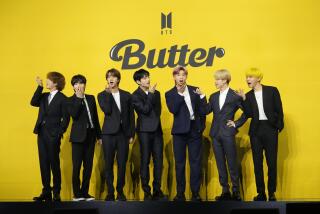Cordata’s Founder Resigns in Dispute With Korean Owners
- Share via
Personal computer pioneer Robert S. Harp said Wednesday that he has resigned as chairman of Cordata Technologies after an angry dispute earlier this week with executives from the Korean industrial conglomerate that owns 70% of the Newbury Park company.
Harp also said that the Daewoo Group, Cordata’s principal owner, plans to effectively shut down the 6-year-old concern, which has struggled to win a share of the market for IBM-compatible personal computers. He cited plans announced Wednesday for Cordata to relocate its headquarters to a Daewoo building in Compton, saying less than 10% of Cordata’s 150 employees will make the move.
Harp, who founded Cordata and remains its largest shareholder with a stake of nearly 14%, accused Daewoo of relocating to prompt employees to quit, enabling it to avoid paying severance benefits.
“This is tantamount to closing the company down,” Harp said. “There was a show of hands at an employee meeting asking how many people would commute to Compton. Nobody would.”
Cordata Chief Executive Hyo Bion Im denied Harp’s charges, saying the move is intended only to cut costs. He said that Cordata will continue to operate and will launch a new advertising campaign. Im added that Cordata will provide incentives to employees who decide to work in Compton, and that severance pay is being considered for those who do not transfer.
Daewoo first invested in Cordata in late 1985, when the company was suffering from an industrywide slump. According to Harp, Daewoo has spent about $40 million since then trying to turn around the company.
Cordata executives have described the relationship between Daewoo and Harp as tense for some time, with repeated clashes between Harp and Im, a longtime Daewoo executive installed as Cordata’s chief executive in February. A trade magazine, Electronic News, reported this week that Harp punched Im during an argument last week, and Cordata sources confirmed the account.
Asked about the incident, Harp said: “Let’s just say it went beyond a verbal disagreement. I don’t want to admit to anything.” Im declined to comment on the matter.
Harp said his resignation, effective Monday, came about because he had no more say in company decisions, including the move to Compton. Harp said he asked Daewoo to replace Im, who moved to the United States from Seoul, South Korea, and had no previous experience running a computer company.
“There were too many amateurs involved here, and he was the last of the amateurs,” Harp said. “Im knows nothing about computers and has no experience running a company in the U.S. or doing business in the U.S. It was a poor choice on their part.”
Im said the company spent money extravagantly before he took over and that he has cut costs. He said he uses a small office, shares a secretary with others and has started tighter travel controls.
Harp, who also resigned as senior vice president of development and engineering, remains a director of the company. But he said he is repeatedly outvoted by the Daewoo-dominated board.
Harp, 50, founded Cordata in 1981 as Corona Data Systems and was its chief executive until March, 1986. Before that, the Stanford-educated engineer was a driving force behind Vector Graphic, a now-defunct Westlake Village firm that introduced one of the first personal computers in 1977.
Cordata, which is privately held, does not disclose its financial results. Harp said, however, that it lost $20 million last year and probably will lose another $20 million this year. Sales, he said, probably will drop to about $25 million this year from $50 million last year despite the strong recovery nationwide in personal computer sales.
Harp said he expects Daewoo to keep Cordata only as a paper entity, so that it can take advantage of its substantial tax-loss carryforwards, which allow a business to use previous losses to offset taxable income.




